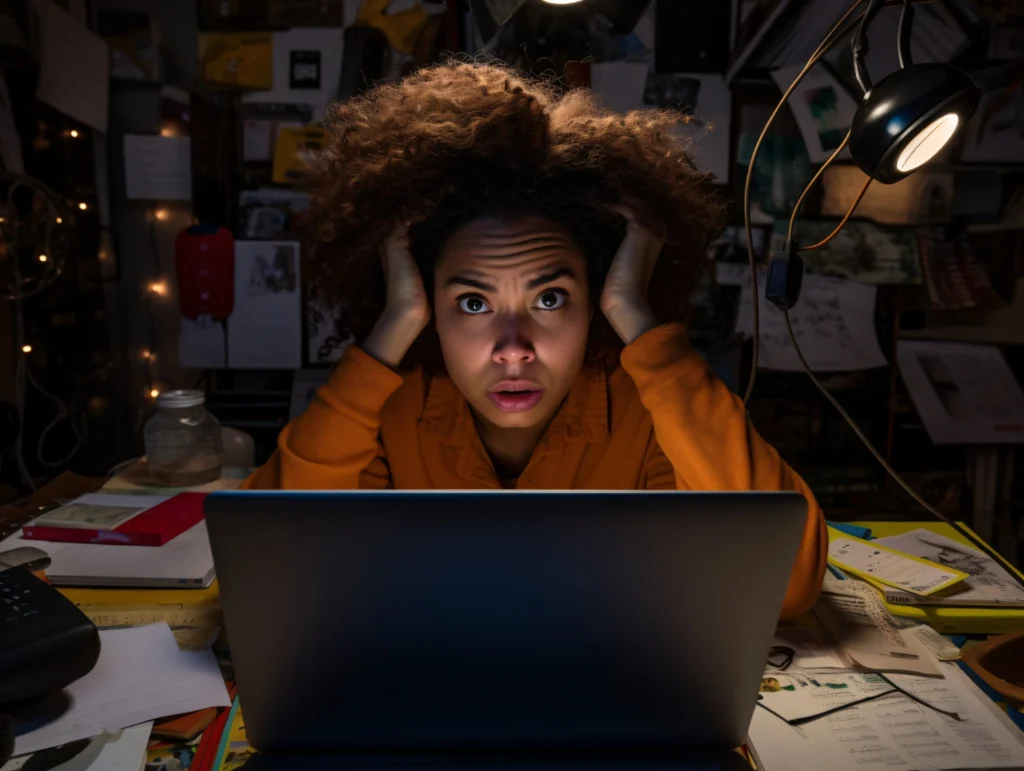You’d think having a psychology degree would make me immune to burnout, right? Ha! Big joke. Burnout doesn’t care about your qualifications.
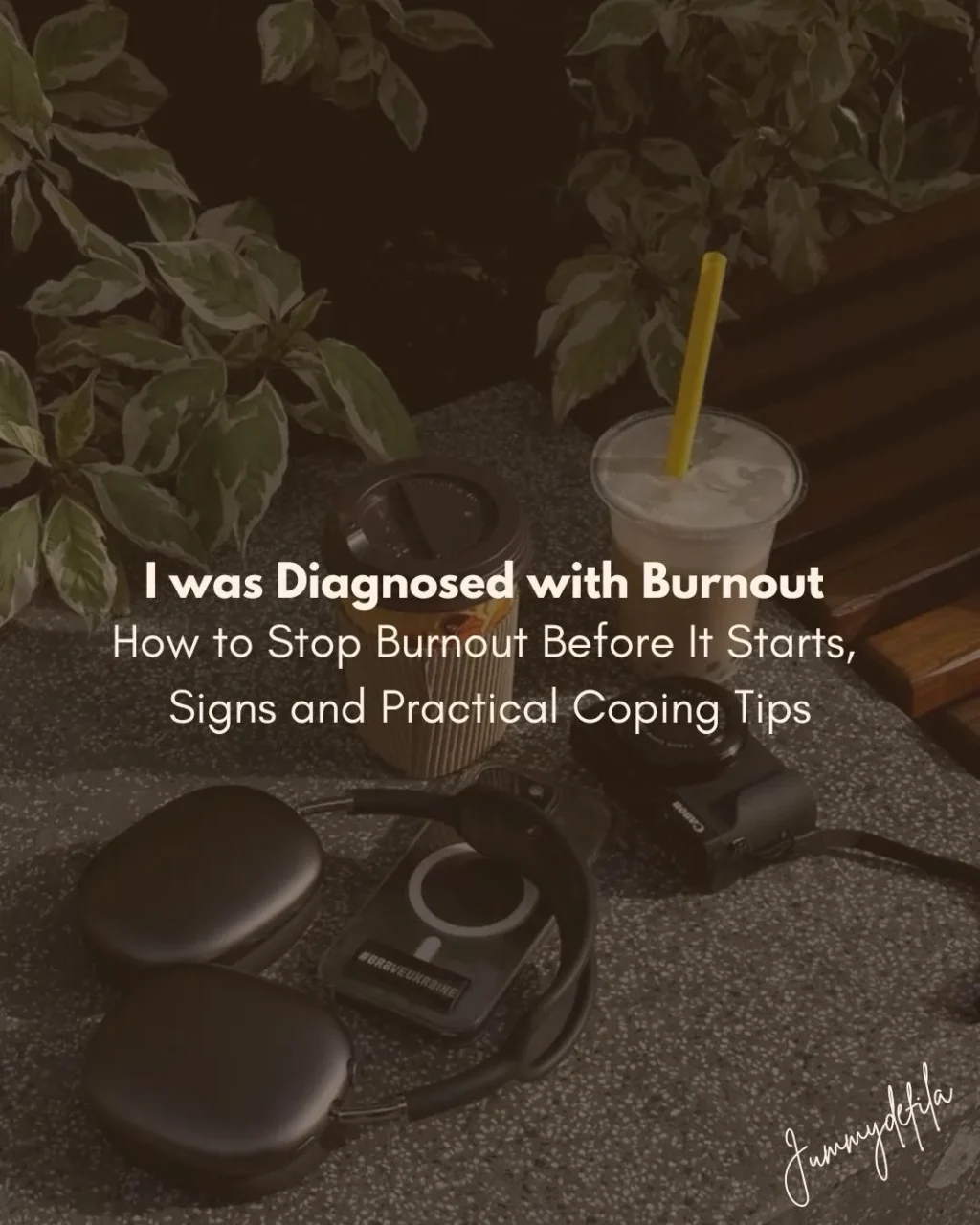
A few weeks ago, I hated everything about being in the creative space. Every project I once loved felt like a massive burden. Deadlines? They triggered severe anxiety. Sleep? Barely four hours a night, if I managed to sleep at all. Even the smallest tasks felt like climbing a mountain, and nothing I did brought me joy anymore.
It was late one night, and I was hunched over my laptop, the screen glaring at me with its unrelenting brightness. I had already clocked in 17 hours of screentime. Seventeen! My eyes felt like sandpaper, my head was pounding, and I hadn’t eaten anything solid since I grabbed a snack at noon.
The tears came without warning. One minute, I was typing up a report; the next, I was sobbing into my palms. Deadlines felt like enemies closing in on me, and my heart raced at the thought of all the unfinished work. I just wanted it all to stop.
I knew something was wrong, but I didn’t have the willpower to pull myself out. You’d think having a psychology degree would save me from burnout, right? Nope. I thought I could handle it like I always did:
“Let me just finish this project, and I’ll rest.”
“I’ll reply to this email, then I’ll rest.”
“Just one more meeting.”
Rest never came, and I paid the price for it. Then came the family emergency that pulled me away from work for three days. At first, I panicked, what about the emails? The reports? The everything? But you know what? The world didn’t end. That forced break was my wake-up call. I wasn’t just tired, I was severely burnt out.
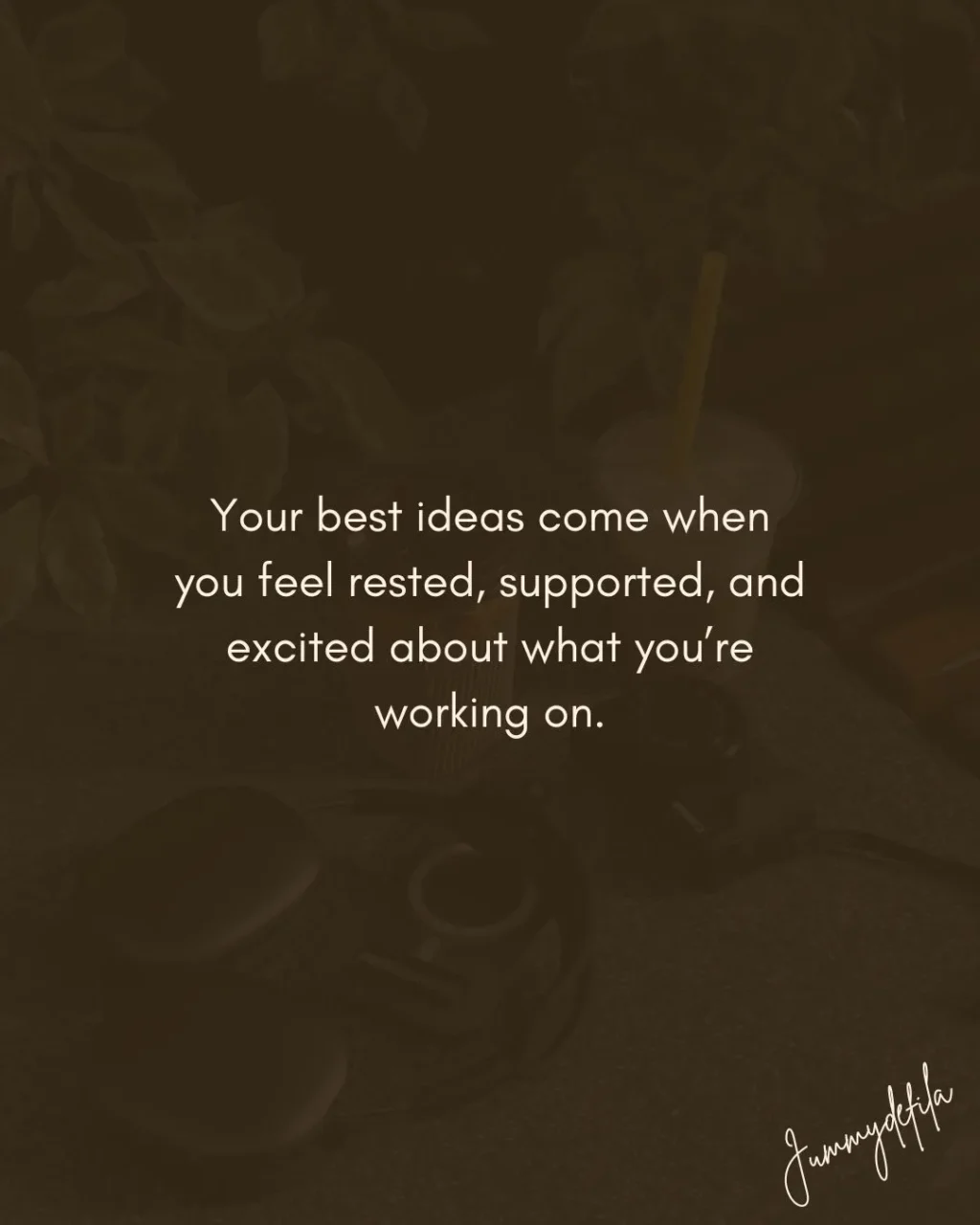
Burnout sneaks up on you like that sly colleague who “just needs a quick favor.” Before you know it, you’re emotionally drained, mentally foggy, and physically spent. For corporate creatives, where passion often collides with tight deadlines, it’s even trickier to spot. But here’s the thing: burnout doesn’t have to be the end of your story.
In this post, we’ll explore:
1. Why burnout is a big deal.
2. What burnout looks like for creatives.
3. Signs you should not ignore
4. Practical tips to stop burnout before it takes over
5. Stress relief exercises
Let’s dive in. Your creativity and peace deserve better.
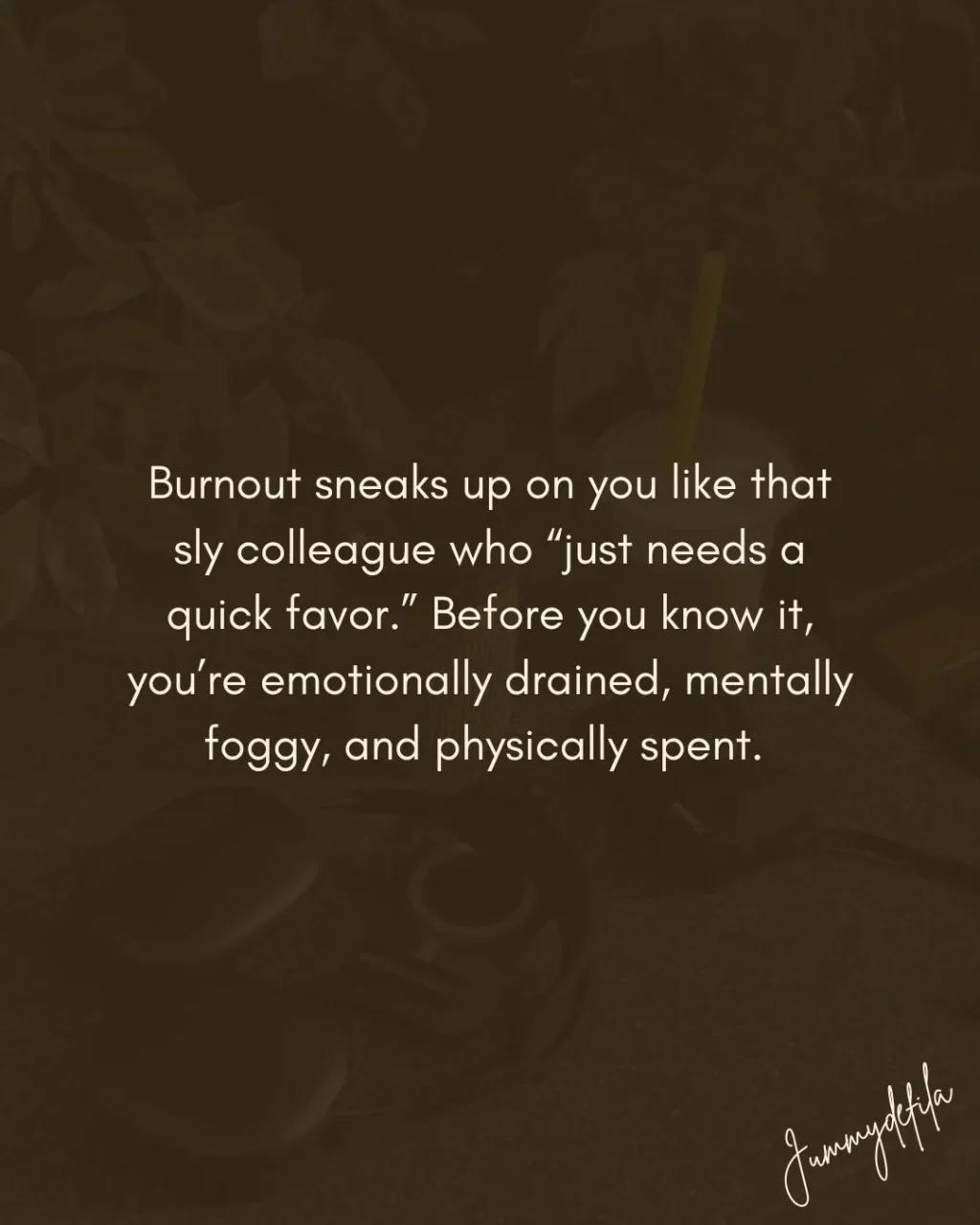
What Exactly Is Burnout & Why Is it a Big Deal?
Burnout isn’t just exhaustion, it’s a complete depletion of energy and motivation caused by chronic stress. According to the World Health Organization, burnout is a syndrome resulting from workplace stress that hasn’t been properly managed.
Burnout hits differently when you’re a creative. It’s not just about being physically tired, it’s feeling like your spark is gone, like you’re pouring from an empty cup. You’re juggling deadlines, brainstorming ideas, trying to stay inspired and somewhere along the way, you get stuck, drained, and done.
For creatives in Nigeria, where the hustle mentality runs deep, we often normalize pushing ourselves to the limit. “Hard work no dey kill person,” we say. But burnout proves otherwise. It sneaks in when we’re juggling work deadlines, family responsibilities, and personal goals without giving ourselves time to breathe. Spoiler alert: your health isn’t something you can reschedule.
Signs of Burnout You Shouldn’t Ignore
Before burnout takes over, it leaves clues. Here are some common signs:
1. Creativity Feels Like a Chore
Your usual spark is gone. Coming up with ideas feels like pulling teeth, and you’re second-guessing every design, concept, or pitch. Even projects you were excited about now feel like a burden.
Example: Staring at a blank Canva template or document for hours, unable to start because nothing feels good enough.
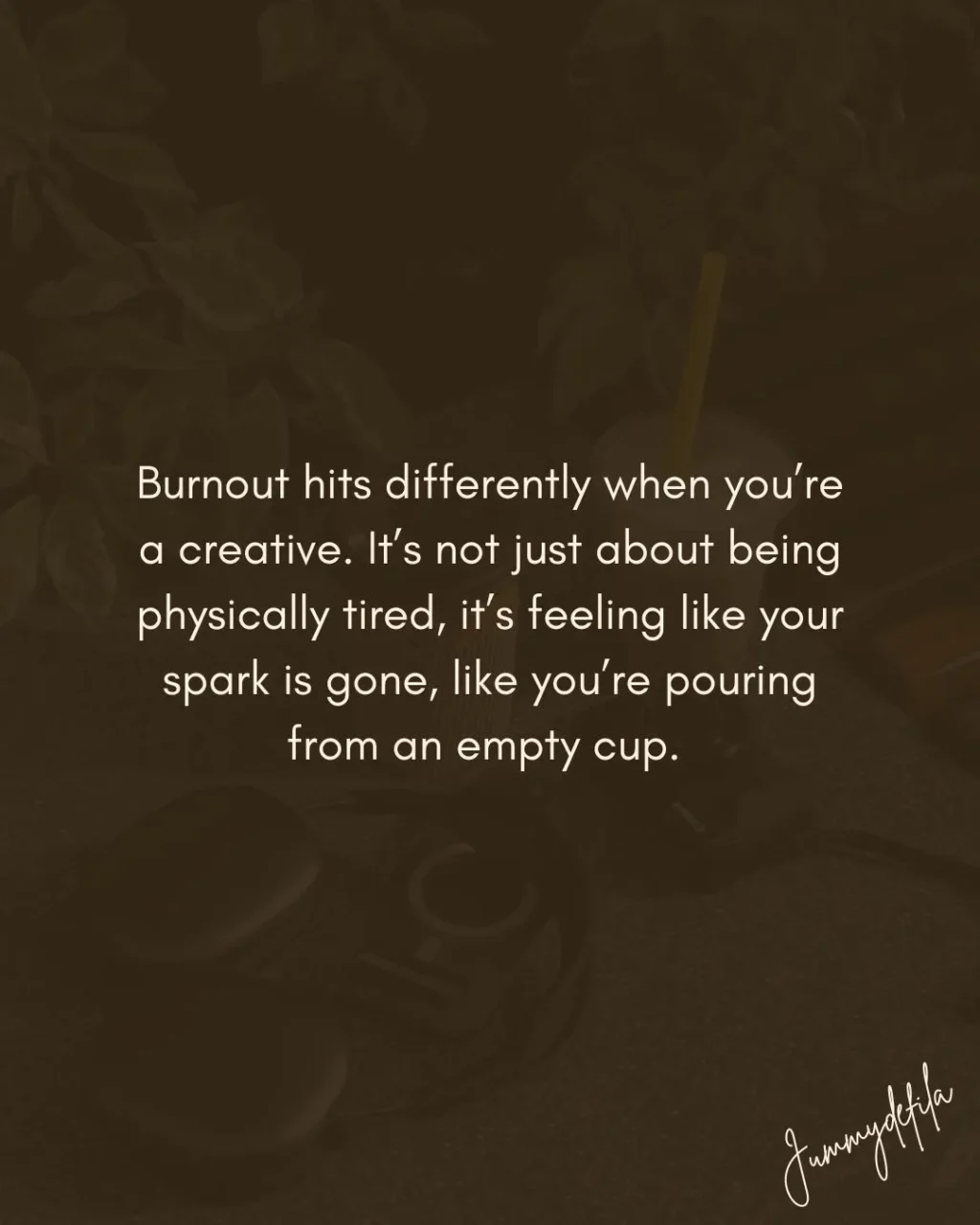
2. Overwhelmed by Deadlines
Deadlines pile up, and instead of motivating you, they trigger anxiety. You either procrastinate or work endlessly, but nothing seems to meet your own standards.
Example: You have three projects due next week, but the thought of starting any of them makes your heart race.
3. Physical and Emotional Exhaustion
You’re always tired, even after a weekend off (if you even take one). You feel like you’re dragging your body and brain through every task.
Example: You fall asleep at your desk or rely on coffee and energy drinks to keep going but still feel drained.
4. Cynicism or Feeling Disconnected
You start to resent clients, coworkers, or even your own work. You feel like you’re just going through the motions, not creating anything meaningful.
Example: Rolling your eyes every time a client asks for “one more revision” or feeling like nothing you do will ever satisfy your boss or audience.
5. Struggling to Focus
The smallest tasks take forever because your mind keeps wandering. You reread the same email five times, and your to-do list keeps growing.
Example: Spending two hours on a social media caption because you can’t find the “right words.”
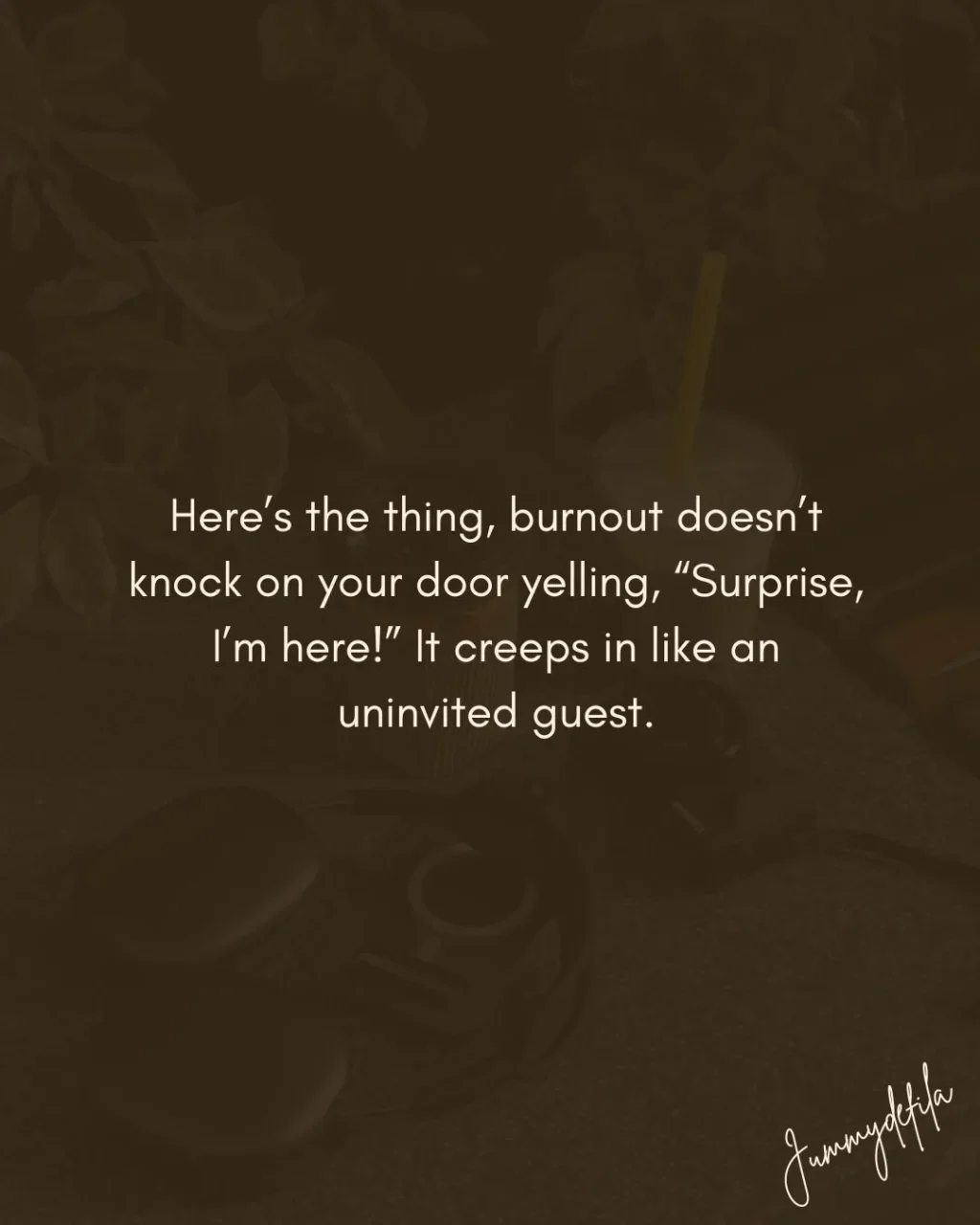
6. Neglecting Self-Care
Work takes over everything. You skip meals, don’t exercise, and barely sleep because there’s always one more thing to finish.
Example: Forgetting to eat lunch because you’re editing a video or answering emails till midnight.
7. Imposter Syndrome on Overdrive
You feel like you’re failing at everything, even when you’re doing fine. You compare yourself to others and think you’re falling behind.
Example: Seeing a colleague’s campaign go viral and feeling like you’re not talented enough.
8. Work Becomes Your Whole Life
You cancel plans, avoid friends, or neglect hobbies because work always comes first. Your identity feels tied to your output.
Example: Telling yourself, “I’ll rest when this project is over,” but the projects never stop.
Does any of this sound familiar?
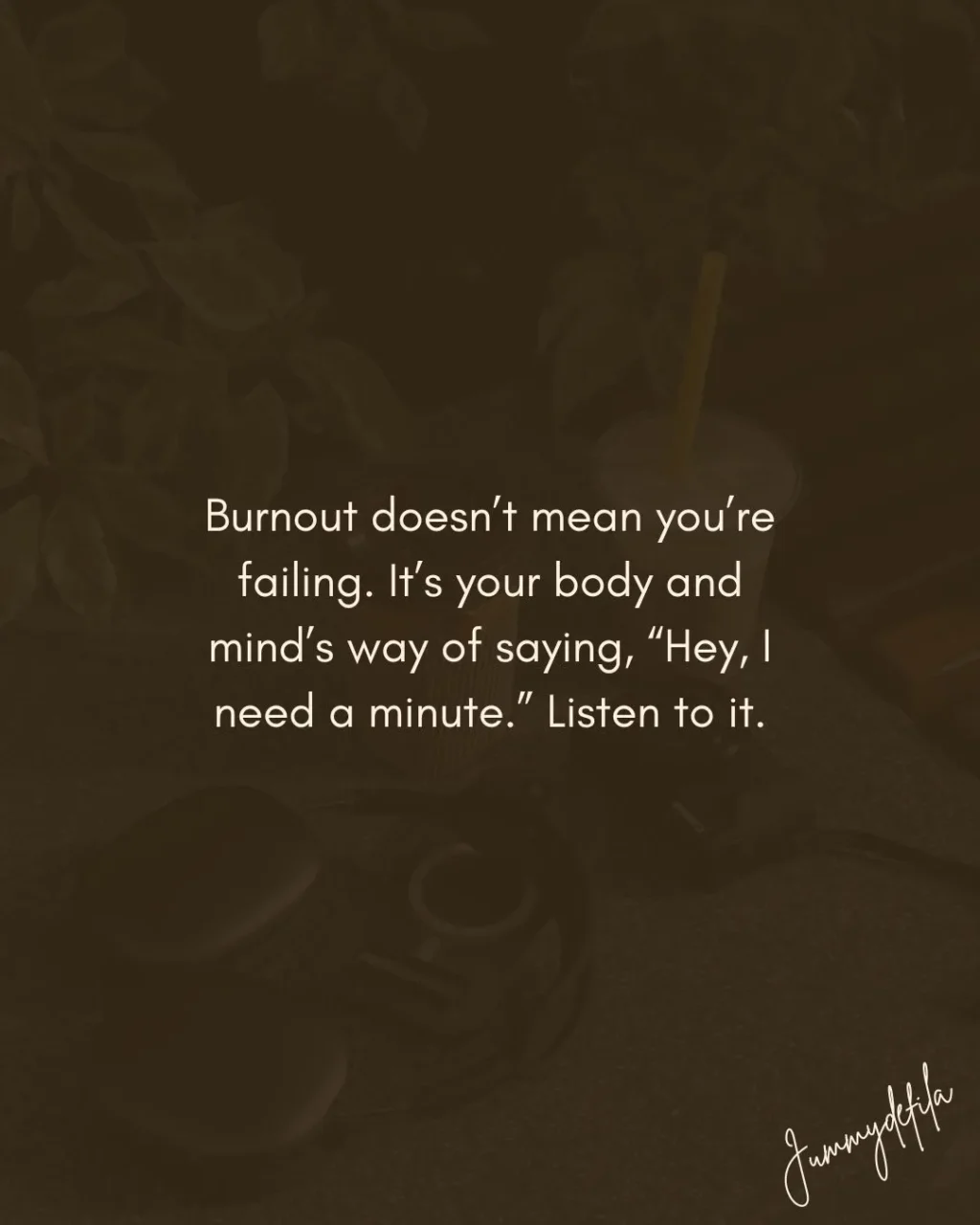
Why Burnout is Sneaky
Here’s the thing, burnout doesn’t knock on your door yelling, “Surprise, I’m here!” It creeps in like an uninvited guest. You convince yourself, “I’ll just do this one last thing,” or, “It’s not that bad, I can handle it.” Then one day, you’re crying over your laptop at 2 a.m., wondering how you got here.
How to Prevent & Manage Burnout as a Creative
I’m not going to leave you hanging, there’s a way out of this cycle. Here’s what helped me, and it might help you too:
1. Set Work Boundaries (and Mean Them) without feeling guilty
If you’re anything like me, you’ve probably said “yes” to too many tasks, thinking you can handle it all. Pro tip: you can’t. Saying “no” isn’t selfish; it’s survival.
Solution: Communicate your availability clearly.
For example:
- If someone asks you to help “just one more time” at 10 PM, remind them, “My brain logs out at 8 PM. Let’s pick this up tomorrow.” Trust me, they’ll respect you more for setting boundaries.
- Client Scenario: “You can deliver this logo today, abi?” Instead of instead of saying, “I’ll get it to you ASAP.”, reply with: “I can have a polished version ready by 3 PM tomorrow to ensure it’s the best quality.” (Protect your time while showing you care about quality).
- Set “focus hours” where you work without interruptions, and use autoresponders for emails or messages during that time.
Why It Works: Clear boundaries show professionalism while protecting your time and mental energy.
2. Manage Deadlines Without the Panic
Challenge: Juggling multiple projects leaves you feeling like you’re loosing control.
Solution:
- Break big projects into smaller, manageable tasks with daily goals.
- Use time-blocking to prioritize high-energy tasks earlier in the day (e.g., brainstorming a campaign in the morning and responding to emails in the afternoon).
- Build in buffer time for unexpected delays.
Why It Works: Breaking tasks down reduces overwhelm, and buffers prevent last-minute scrambles.
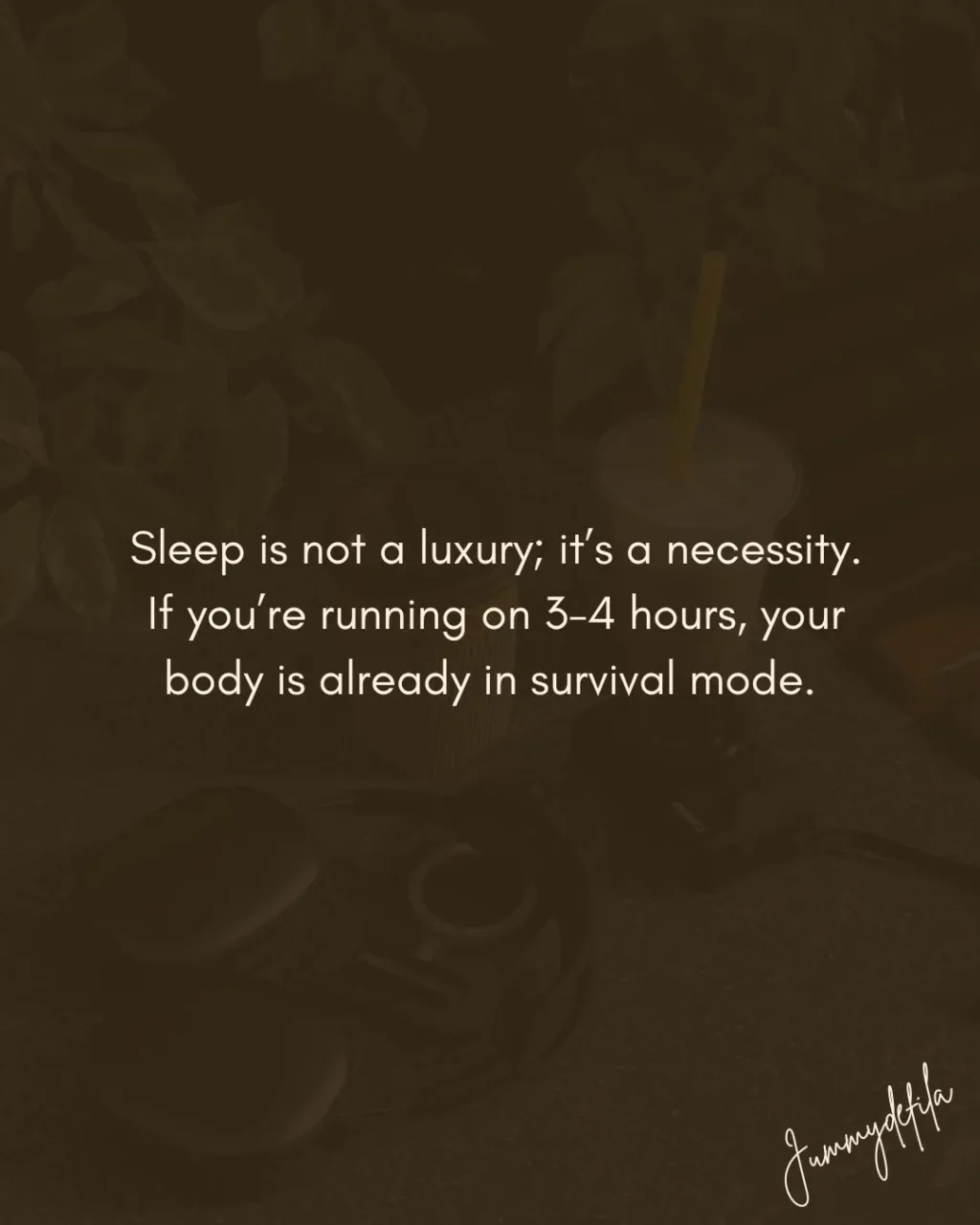
3. Schedule “Me Time” Like a Meeting with your boss.
Challenge: You feel guilty taking breaks because your to-do list is never-ending.
If your calendar is packed with back-to-back calls and tasks, carve out time for yourself, even if it’s just 15 minutes.
Think of it as refueling your car you can’t keep running on empty.
Solutions
- Use the Pomodoro Technique: Work for 25 minutes, then take a 5-minute break.
- Set an alarm for mini-breaks during the day. Stretch, drink water (not just coffee!), or just stare out the window. Yes, staring out the window is productive. It’s called mental decluttering.
- End your workday with a “closing ritual” to signal that work is done, like tidying your desk or journaling your wins for the day.
Why It Works: Short breaks improve focus and creativity, and rituals help you mentally disconnect from work.
4. Prioritize Rest Like Your Life Depends on It (Because It Does)
Sleep is not a luxury; it’s a necessity. If you’re running on 3-4 hours, your body is already in survival mode. Make it a point to get at least 6-8 hours.
Pro Tip: Try power naps during lunch breaks if your nights are too busy. Even 20 minutes can work wonders. They know me in my work place, I will always take that nap on shoot days. 1 hour and I’m as good as new.
5. Prioritize Your Creativity
Challenge: Client feedback and team opinions can sometimes drain your creative spark.
Solutions
- Schedule “creative play” sessions where you experiment with ideas unrelated to work (e.g., doodling, designing for fun, or exploring new trends).
- Protect your creative time by blocking it on your calendar.
- Avoid jumping straight into revisions, take time to reflect on feedback before acting.
Why It Works: Creativity thrives when you’re free to explore without pressure, and stepping back from feedback allows for better solutions.
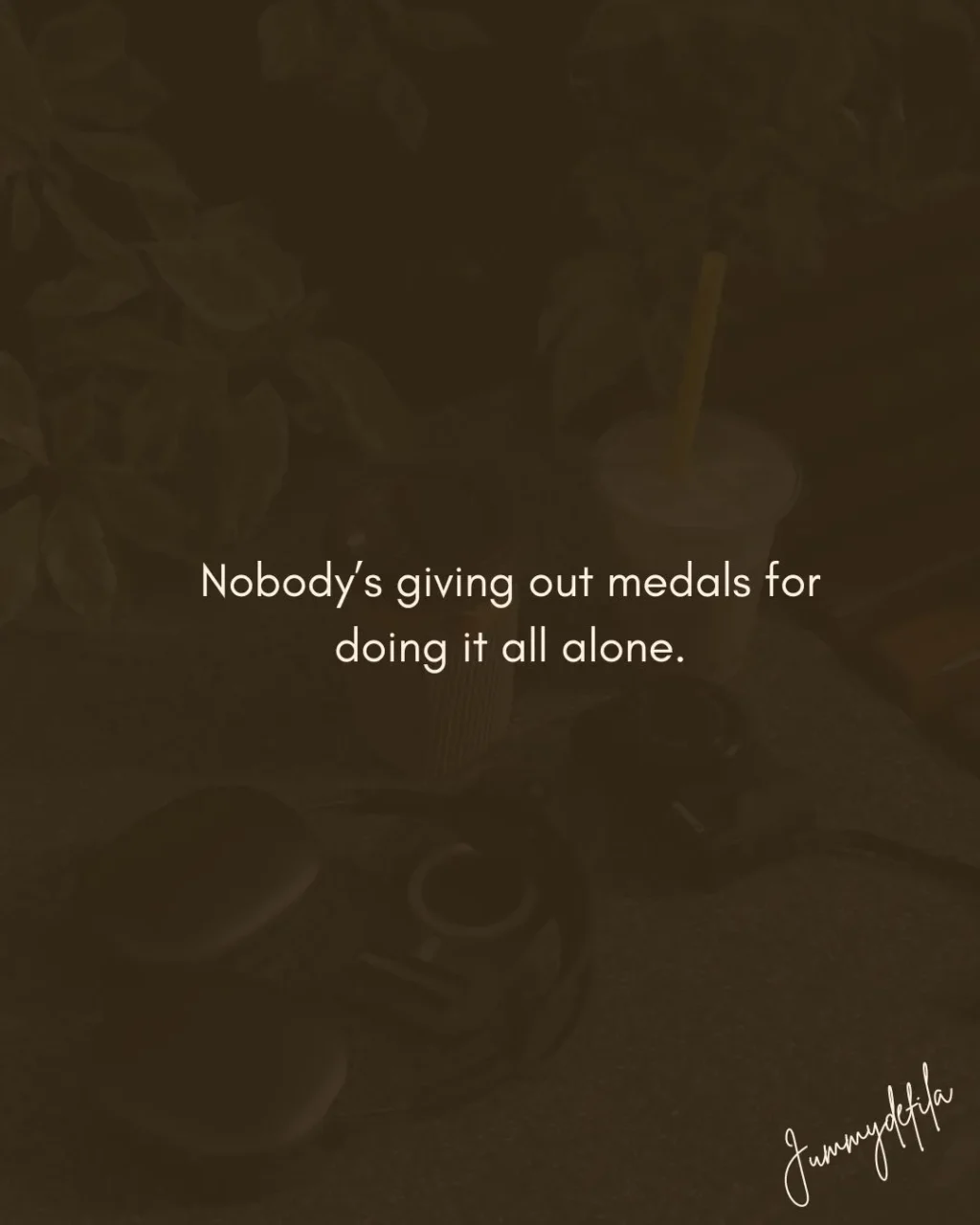
6. Build a Support System for Stress Relief
Challenge: Collaborating with teams or managing difficult clients leaves you feeling isolated.
Solutions
- Create a “decompression buddy” system with a trusted colleague where you vent briefly, share laughs, or exchange pep talks.
- Attend networking or creative meetups for inspiration and shared experiences.
- Don’t hesitate to delegate tasks when you’re overwhelmed.
Why It Works: Sharing the load and connecting with others reduces stress and reminds you that you’re not alone.
7. Normalize Asking for Help
Nobody’s giving out medals for doing it all alone. If you’re drowning, delegate. Whether it’s asking a colleague to proofread a document or outsourcing some tasks, lean on your team when you need to.
My Personal Insight: I used to think asking for help meant I wasn’t capable. But when I finally let others pitch in, I realized that teamwork isn’t just a corporate buzzword, it’s a lifesaver. Ideas will be flowing like milk and you’ll churn out an overly creative work you’ll be proud of.
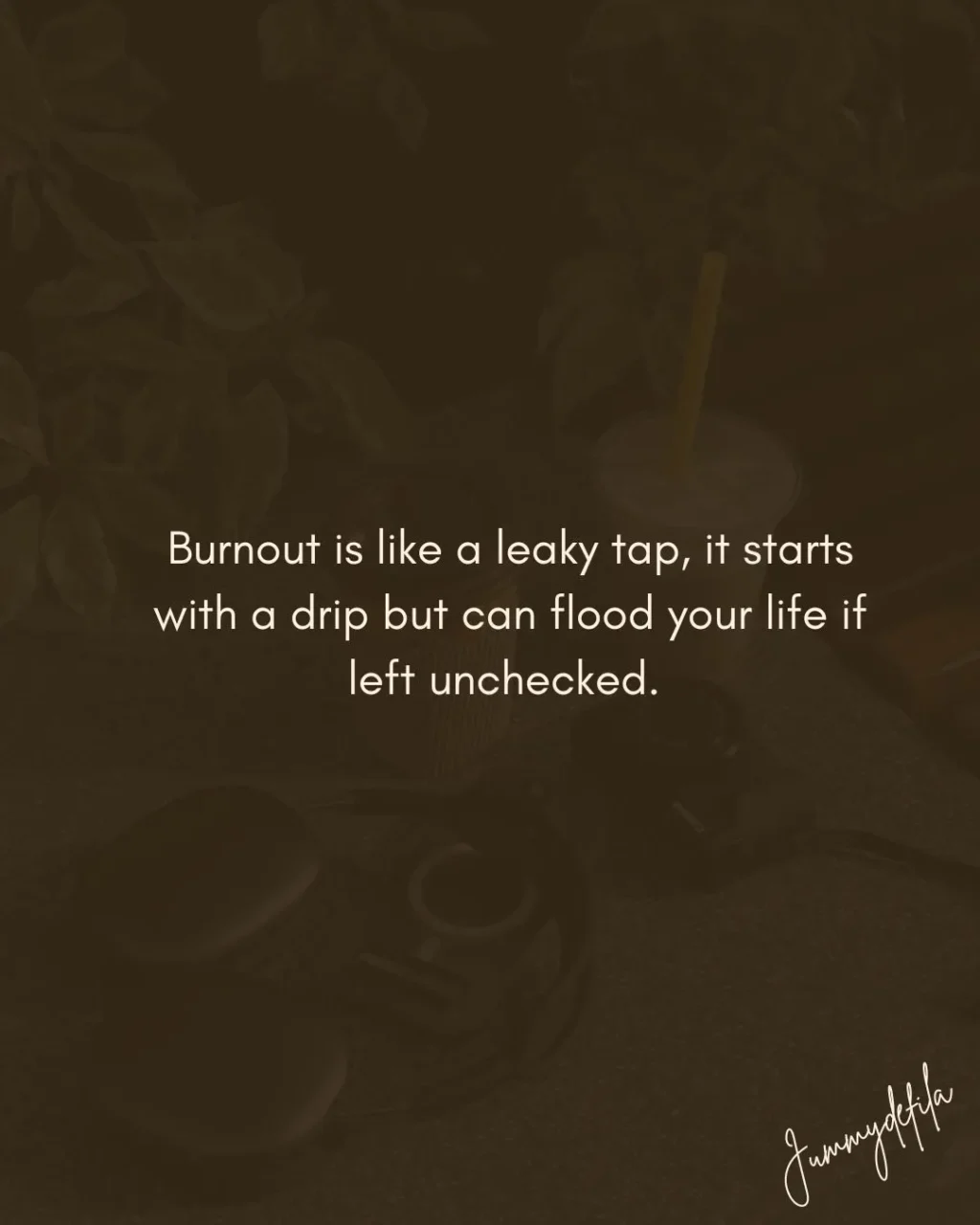
Bonus: A Stress-Relief Exercises You Can Try Today
When the pressure is mounting, try this:
1. Box Breathing Technique:
This method is as simple as it sounds. Inhale for 4 counts, hold for 4 counts, exhale for 4 counts, and hold again for 4 counts. Repeat this for a few minutes to calm your nerves instantly.
Work Ritual: During Lagos traffic breaks or downtime, try the Box Breathing technique to reset your nerves before diving into work again.
2. Desk Yoga:
Roll your shoulders, stretch your arms overhead, or do a seated twist. These movements reduce tension and help reset your focus.
3. Digital Detox Before Bed:
Shut off your devices at least 30 minutes before bedtime. This reduces blue light exposure and helps your brain transition into rest mode.
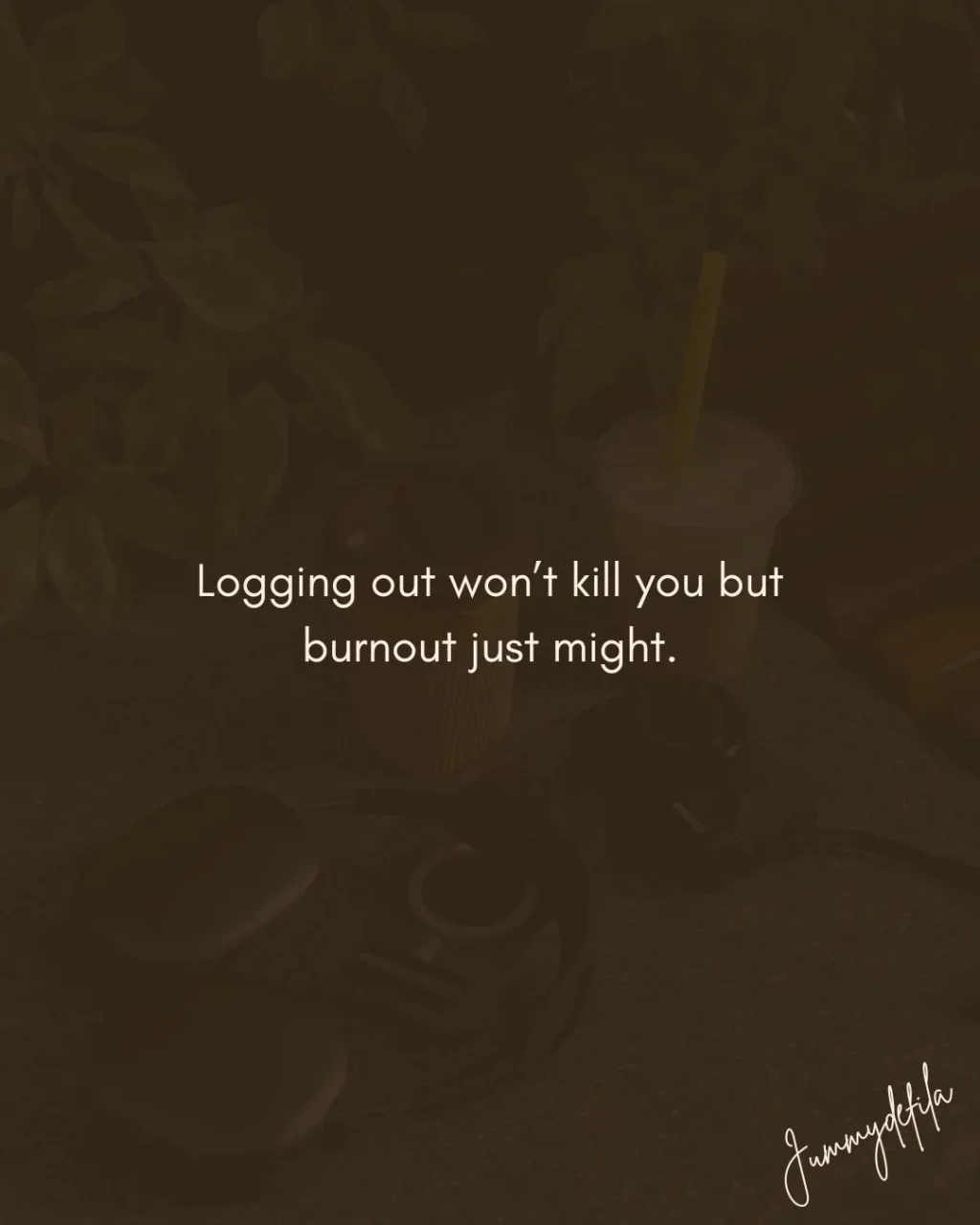
The Bottom Line
Burnout is like a leaky tap, it starts with a drip but can flood your life if left unchecked. The trick is catching it early and making intentional changes.
So, whether you’re feeling overwhelmed or just on the brink, remember this,
Your value isn’t tied to how much you produce. Rest is productive too.
Take it from someone who learned the hard way. Logging out won’t kill you but burnout just might.
Burnout doesn’t mean you’re failing. It’s your body and mind’s way of saying, “Hey, I need a minute.” Listen to it.
Take the breaks, set the boundaries, and remember, you’re not alone in this. We’re all trying to balance creativity and deadlines without losing our minds
Your best ideas come when you feel rested, supported, and excited about what you’re working on.
Your spark is still there; it just needs a little care to shine again. 💛
Your Psychology Friend,
JD


